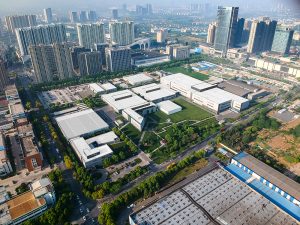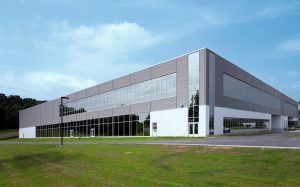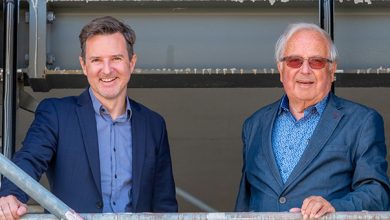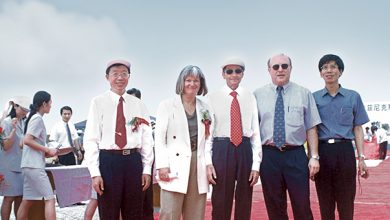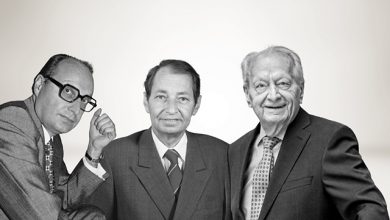With the creation of the Centers of Competence in the major subsidiaries USA and China, Phoenix Contact began to take account of the growing globalization and specialization of markets. More individual responsibility for more joint success.

“We are an American company,” Dave Skelton answers confidently to the question of whether Phoenix Contact is still a German company for him that only operates a branch office in the USA. This pride in the company’s own performance is no coincidence. It is true that Phoenix Contact USA was founded back in 1981 as one of the first three foreign subsidiaries. But it was not until the Global Production Network, introduced in 2003, that in-house developments, adapted to the special requirements of America, were given the organizational framework, explains the former Vice President and Head of Development and Production at Phoenix Contact USA.
Phönix becomes Phoenix
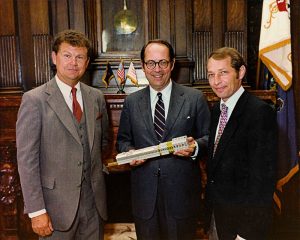
Phoenix Contact made its debut on the American market relatively late. Josef Eisert had once decided, “America, that’s not a market for us.” This only changed when his sons took over the company management. With Gerd Eisert, the systematic development of an international Phoenix Contact brand began. After the founding of the first three foreign subsidiaries in Sweden, Switzerland and the USA, at least one new subsidiary followed continuously every year.
Phoenix Contact is now represented in more than 50 countries. Think global, act local – according to this motto, the subsidiaries have had a great deal of independence from the very beginning.
Outdated technology?
The first General Manager of Phoenix Contact USA was Don Springer. With him as a partner, Gerd Eisert built up the American subsidiary. The first meeting of the two did not go as smoothly as the following 23 very successful years would suggest. It was at the airport in Pittsburgh that Springer met for the first time with those responsible for the East Westphalian family business. When he was shown a terminal block as an example of Phoenix Contact’s core products, he thought to himself, “Oh dear, what outdated technology is this.” That changed when Klaus and Gerd Eisert explained the market and products to him: “I understood the technology and was thrilled.”
In 1981, together with Gerd Eisert and a team of five employees, Springer founded Phoenix Contact, Inc. in Harrisburg, Pennsylvania, in rented premises. A year later, the team moved into its own premises.
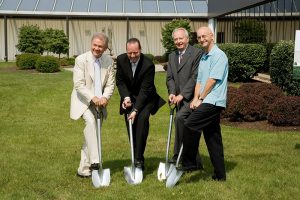
In 2001, Don Springer handed over the company as president and CEO to his successor Jack Nehlig. Over the next three years, Springer dedicated his time as president and CEO to the founding and development of the newly established manufacturing company Phoenix Contact Manufacturing, Inc. Until then, Phoenix Contact had no manufacturing operations of its own in the United States.
Closer to the customer
The reason for this change: Phoenix Contact pursued a new strategy adapted to the stormy development of the business and the continuous expansion to new markets. In addition to the USA, Phoenix Contact also started in the large countries of Asia, in India and China. These large subsidiaries were developed into production sites.
Particularly in the case of the Asian subsidiaries, this was not done in order to establish low-cost production. The idea behind this, as explained by the long-standing General Manager Klaus Eisert, was to establish a “Trans National Concept” (TNC) for customer-specific marketing as well as the development of products and also their production on site. This, according to Eisert, has brought the company much closer to its customers.
The idea of regional competence centers was approached by the Executive Board around General Managers Frank Stührenberg and Roland Bent in 2004. And the new strategy began with North America. Dave Skelton had joined Phoenix Contact in Harrisburg in 1999. In 2005, he was entrusted with setting up and managing the “Regional Center of Competence”. The manager gathered all the experts who were already working at Phoenix Contact USA on the development of primarily local products and solutions. Together, the team dedicated itself to a global product strategy.
Made in USA
The first results of this new production network quickly became apparent: In the following years, the American team of specialists developed technologies such as unmanaged Ethernet switches or secure communication solutions in the 900 MHz spectrum as products that follow a common corporate strategy and can be used in almost all markets worldwide. For example, the development of industrial PCs for the automation industry influences the field of renewable energy, for example in current projects at the European market leader for wind turbine generators Enercon.
Today, more than 1,000 employees work at three locations in the USA. In China, 2,500 employees are active. All production sites worldwide are networked with one another, working to uniform standards and common specifications. And just as the German headquarters benefits from the successful activities of its foreign subsidiaries, the overall strategy has a knock-on effect in the markets. Dave Skelton: “Phoenix Contact is ideally positioned with its products to support American companies on their way to an All Electric Society, whether with standard products or tailored to the requirements of our customers.”

